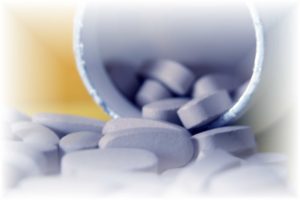 Commonly used prescribed painkillers for treating pain and inflammation are associated with an increased risk of hospital admission for heart failure, finds a study recently published in The BMJ.
Commonly used prescribed painkillers for treating pain and inflammation are associated with an increased risk of hospital admission for heart failure, finds a study recently published in The BMJ.
The drugs include traditional non-steroidal anti-inflammatory drugs (NSAIDs) as well as new generation anti-inflammatory drugs, known as COX-2 inhibitors.
Studies have shown an association between use of traditional NSAIDs and COX 2 inhibitors and an increased risk of heart failure, but the risk and dose-response relation associated with individual drugs is still largely unknown.
Therefore, a team of researchers, led by Giovanni Corrao at the University of Milano-Bicocca in Italy, set out to estimate the risk of hospital admission for heart failure with use of individual NSAIDs.
Their findings are based on almost 10 million NSAIDs users from four European countries (the Netherlands, Italy, Germany, and the United Kingdom).
A total of 27 individual NSAIDs, including 23 traditional NSAIDs and four selective COX 2 inhibitors, were included in the analyses. Overall, 92,163 hospital admissions for heart failure were identified and matched with 8,246,403 control patients.
Current use of any NSAID was found to be associated with a raised risk of hospital admission for heart failure, compared with past use.
After taking account of potentially influential factors, risk of admission for heart failure increased for seven commonly used NSAIDs (diclofenac, ibuprofen, indomethacin, ketorolac, naproxen, nimesulide, and piroxicam) and two COX 2 inhibitors (etoricoxib and rofecoxib).
The researchers found that the magnitude of risk varied between individual NSAIDs and according to the dose prescribed. At very high doses, risk of admission for heart failure doubled for some NSAIDs.
There was no evidence that celecoxib was related to an increased risk of admission for heart failure at commonly used doses. However, celecoxib was used mostly in low doses, so the safety of higher doses of celecoxib remains unexplored.
This is an observational study, so no firm conclusions can be drawn about cause and effect, and information on absolute risks was not provided.
Nevertheless, the authors say their study “offers further evidence that the most frequently used individual traditional NSAIDs and selective COX 2 inhibitors are associated with an increased risk of hospital admission for heart failure. Moreover, the risk seems to vary between drugs and according to the dose.”
They conclude: “Because any potential increased risk could have a considerable impact on public health, the risk effect estimates provided by this study may help inform both clinical practices and regulatory activities.”
Owing to the widespread use of NSAIDs, “even a small increase in cardiovascular risk is a concern for public health,” say Gunnar Gislason (Copenhagen University Hospital Herlev and Gentoffe, Copenhagen, Denmark) and Christian Torp-Pedersen (Aalborg University, Aalborg, Denmark).
Their wide availability over the counter in supermarkets and convenience stores “further fuels the common misconception that NSAIDs are harmless drugs that are safe for everyone,” they write.
They say tighter regulation is justified and “requirements for healthcare professionals providing advice on their use and potential harm is warranted.”











